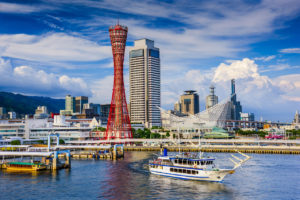Immigration updates for the APAC and EMEA regions
Asia-Pacific
Japan: New border control measures
The government has now released new guidelines and confirmed all new entries from every country / region can apply for a Japanese visa and enter Japan from March 1, 2022. The Japanese Prime Minister addressed this at a national speech on February 17, 2022, and February 18, 2022. Only two conditions are eligible to this new measure:
- Foreign nationals newly entering Japan for a short-term stay (less than three months) for purposes including business or employment and foreign nationals newly entering Japan for a long term stay.
- Foreign nationals falling under (1) and those who have receiving organizations located in Japan.
This summary prepared using information obtained from the Ministry of Foreign Affairs (in English and Japanese).
Thailand: Quarantine updates
The Centre for Covid-19 Situation Administration (CCSA) eased the entry requirements under “TEST & GO quarantine-free scheme” for overseas arrival, on March 1, 2022. The revised entry rules are as follows:
- The second RT-PCR Covid-19 test required by the TEST & GO scheme on day five will be replaced with self-ATK testing (must report / record the result via the MorChana application).
- Only one night of approved SHA Extra Plus (SHA++) or Alternative Quarantine accommodation booking on the day of arrival is required. Travelers must stay within the room until the Covid-19 test results are released.
- Minimum insurance coverage required to enter Thailand will be reduced from USD 50,000 to USD 20,000. Thais and foreign expatriates under Thailand’s national healthcare coverage are exempt from this requirement.
Existing requirements / rules remain unchanged:
- Medical certificate with an RT-PCR lab result indicating that Covid-19 is not detected issued no more than 72 hours before travelling.
- Certificate of Covid-19 vaccination / recovery.
The TEST & GO Thailand pass was made available from March 1, 2022, to apply for. Travelers can now enter Thailand from March 7, 2022, onwards.
This summary was prepared using information obtained from the Tat news.
Disclaimer: The above information is provided for general information purposes only and should not be construed as legal advice. If you have any further inquiries regarding the applicability of this information, please contact Debra Jane Beynon, Regional Immigration Manager (APAC).
Europe, Middle East and Africa
Czech Republic: Closure of the Czech Consulates in Ukraine and Russia
The Czech Embassy in Kyiv and the Consulate in Lviv closed their operation on February 24, 2022. It is now not possible for a Ukrainian citizen to submit a visa application to the Czech Republic and obtain a long-term residence in those Consulates.
If the application has already been submitted, the Immigration Authority will continue the approval process. In the case of the long-term visa applications, it must be collected at the Embassy or Consulate where the application has been submitted. For any residence permits (e.g., Employee Card, Blue Card, and Family Reunification), the residence permit can be collected at the Immigration Authority in the Czech Republic.
As part of the visa-free regime for Ukrainian nationals holding biometric passports, long-term residence permit applicants can arrive to the Czech Republic and wait for approval and collection of the residence permit on the territory of the Czech Republic.
Submission of new applications:
As per the current legislation it is not possible to file the first long-term visa and / or residence permit applications in the Czech Republic or at the Embassy of the Czech Republic in other country than Ukraine (except the situation where the Ukrainian national holds a long-term residence permit in the other country). The Czech Consulates in Saint Petersburg and Yekaterinburg were also closed on February 24, 2022, and Russian nationals were banned from submitting any visa applications at any Embassy or Consulate of the Czech Republic.
The Embassy of the Czech Republic in Moscow remains open, however, it will not be accepting any visas and / or long-term residence applications of Russian nationals similarly to any other diplomatic mission of the Czech Republic which is open.
Russian nationals residing in the Czech Republic on any form of long-term or permanent residence are not affected by the ban for submission of applications at the Czech diplomatic missions. Any application filed, or yet to be filed, at the Immigration Authority should be processed normally without any obstacles.
The Ministry of the Interior has launched a new website with information for Ukrainian nationals and helplines. This information can be found here (in English and Czech).
This summary was prepared using information obtained from the Ministry of Interior (in Czech).
Ukraine: EU support Ukraine
Due to the current situation in Ukraine, most EU members are standing united in their solidarity with Ukraine and are providing immediate financial and humanitarian support.
Germany: Ukrainian nationals with a biometric passport can enter Germany without any visa requirements. They are allowed to stay in Germany for 90 days. If a return is not possible after 90 days, the person must contact the respective foreign authority responsible for their place of residence in Germany. Ukrainian nationals in Germany can apply for asylum in accordance with the legal requirements. More information about asylum and refugee protection can be found here.
Italy: It must be noted that Ukrainian citizens can stay visa-free in the European Union for up to 90 days (in any 180 days) and there are two possible immigration option for Ukrainian citizens:
- Special temporal permit of stay: this applies to a foreigner who is in a proven “situation of serious calamity”, which makes them unable to return to their country due to safety matters. This permit type has a duration of six months, and it is valid only within the Italian territory. This permit allows foreigners to work in Italy and it can be converted into a permit of work.
- Request of asylum in Italy: there is no formal time-frame for making an asylum application. Asylum seekers should make their application as soon as possible. As a general rule, a deadline of 8 days from arrival in Italy for migrants to present themselves to the authorities.
Ireland: Visa requirements between Ukraine and Ireland have been lifted. This will streamline and support the swift exit of both the Ukrainian family members of Irish citizens and the family members of people from Ukraine who are residents in Ireland. It will apply as an emergency measure to all Ukrainians traveling to Ireland. Those who travel to Ireland without a visa during this period will then have 90 days after arrival to regularise their position. Additional information can be found here.
Romania: Ukrainian people may enter the country without any issues, based on a visa-free regime, for 90 days (in any 180 days). Currently, they need to have their documents, such as passports and birth/marriage certificates. Ukrainian citizens who already reside in Romania are not affected in terms of their residency. Click here to read more about the entry rules and asylum regulations.
Poland: Polish borders are open for all Ukrainian nationals fleeing the country from the conflict, meaning there are no immigration requirements in place. Click here to the website with information on border crossing points between Poland and Ukraine and places where they can arrive and receive assistance (information available in Ukrainian / Russian / English / Polish).
Slovakia: Ukrainian citizens can enter Slovakia if they have valid documents for up to 90 days. In individual cases, people without a valid passport would be allowed to enter. The government of Slovakia has also approved the provision of temporary refuge to citizens of Ukraine and their family members. Further information can be found here (in Slovak and English).
Sweden: The Swedish Migration Agency has decided to suspend enforcement in the country. This means that no deportations to Ukraine will be carried out at present. Arrivals from Ukraine with a deportation or expulsion decision can stay in Sweden whilst there is an enforcement stop. The Swedish Migration Agency will also not make decisions on matters of protection needs that apply to applicants from Ukraine. The Swedish Migration Agency’s site provides all the necessary information.
Switzerland: The Federal Council will take in vulnerable people from Ukraine by granting protective status. The Federal Migration Commission also calls on the Federal Council to strengthen the existing forms of cooperation on migration policies with all European bodies and contribute financial and human resources. This is to promote significant humanitarian aid in Ukraine and the neighboring countries of first reception and to pledge its willingness to participate in a future relocation program for the relocation of vulnerable persons, thereby relieving the burden on countries of first asylum at the Ukrainian border. More information can be found in the government’s website (in German).
United Kingdom: There are family visa concessions in place for people of any nationality who usually live in Ukraine with a British family member or person settled in the UK (i.e. they don’t have to be a Ukrainian citizen). This will include parents, grandparents, adult children and siblings from Ukraine, as well as immediate family members. Extended family members will also be able to bring their immediate family with them. Plans have been announced for a new scheme for Ukrainians with no ties to the UK to go there. An uncapped sponsored humanitarian visa route will allow sponsors, such as communities, private sponsors or local authorities, to bring people to the UK. Additional measures for Ukrainians entering the country can be found here.
Disclaimer: The above information is provided for general information purposes only and should not be construed as legal advice. If you have any further inquiries regarding the applicability of this information, please contact Laxmi Vikraman, Regional Immigration Manager (EMEA).
We track policy changes in over 120 countries. Find out how we can help you in this short video.




